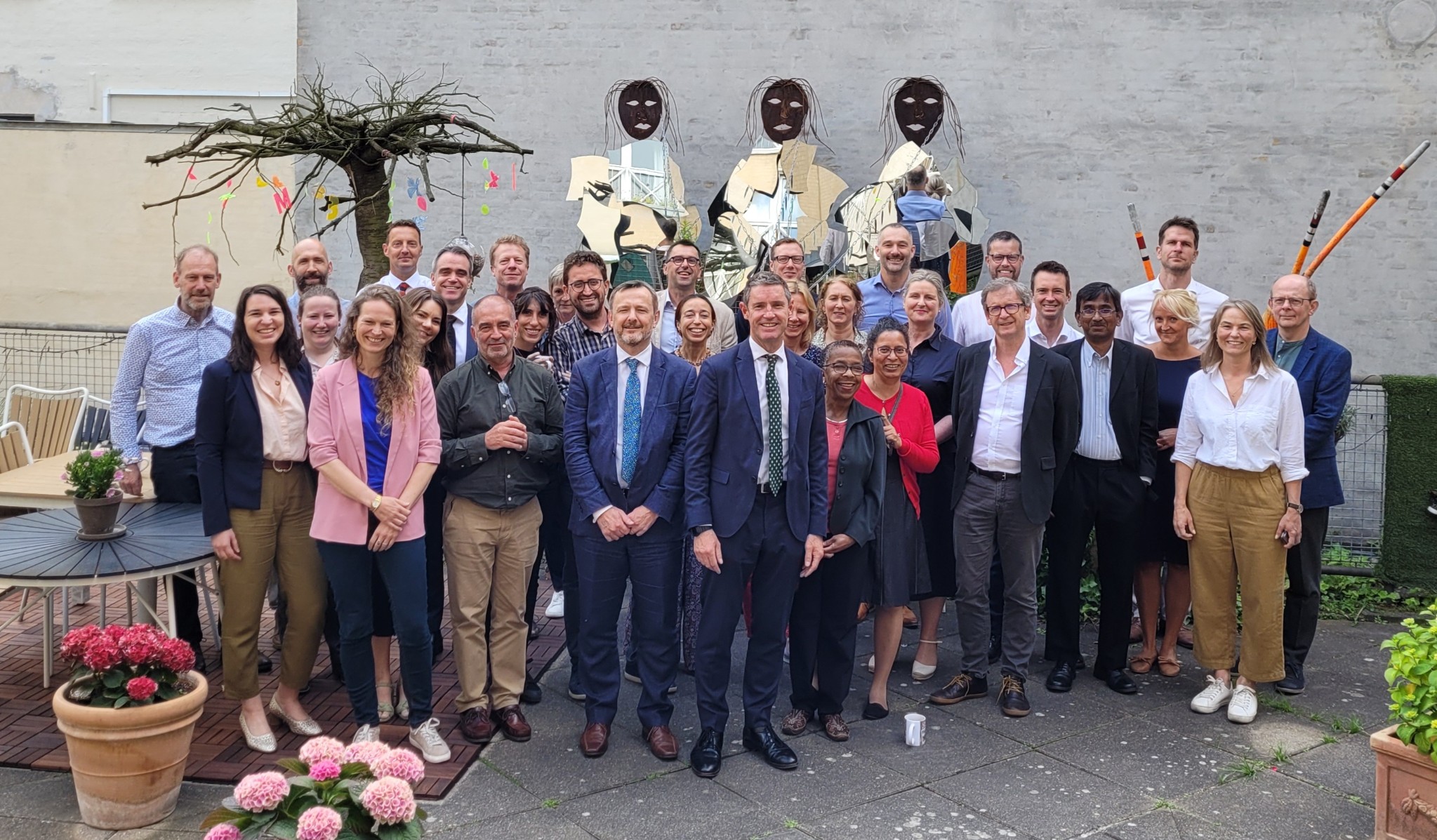Regional collaboration is the key to solving ocean issues in the North-East Atlantic: OSPAR Commission meeting 2022
Press release: 24 June 2022 
OSPAR Contact: Lucy Ritchie Communications Lead | 07769613549 | The Aspect 12 Finsbury Square London, EC2A 1AS |
Regional collaboration is the key to solving ocean issues in the North-East Atlantic
Scientists and policy makers from around the North-East Atlantic met this week in Copenhagen, Denmark from 20 – 24 June 2022 for the annual meeting of the OSPAR Commission. The 15 countries represented at the meeting are all signatories to the OSPAR Convention, along with the European Union.
Key outcomes of the meeting included:
- OSPAR agreed the text for the 2nd Regional Action Plan to tackle marine litter in the North-East Atlantic in the period 2022 - 2030. This ambitious plan brings together OSPAR Contracting Parties to target the sources of marine litter affecting the North-East Atlantic and will be launched at a side event at this year’s United Nations Ocean Conference in Lisbon (Portugal) on 28 June 2022.
- The OSPAR Network of Marine Protected Areas now comprises 583 MPAs, including 8 MPAs collectively designated in the high seas. All MPAs have a total surface area of 1 490 552 km2, covering 11% of the OSPAR Maritime Area. By designating more than 10% of marine and coastal waters as MPAs, OSPAR has achieved Aichi Biodiversity target 11 of the United Nations Convention on Biological Diversity.
- The Fifth Periodic Evaluation of Progress towards the Objective of the OSPAR Radioactive Substances Strategy 2010 - 2020 concluded that Contracting Parties have successfully fulfilled the 2010 – 2020 objectives and prevented pollution of the OSPAR Maritime Area by ionising radiation. The Chair of the Radioactive Substances Committee, Dr Justin Gwynn (Norway), stood down as Chair after 12 years leaving behind a significant legacy of achievement.
- The Global Ghost Gear Initiative, European Boating Industry, and Nuclear Transparency Watch were approved as new observer organisations and were welcomed to the OSPAR family. OSPAR’s observer organisations represent a broad range of interests and expertise related to the marine environment and the uses of marine resources.
- 9 common indicator assessments of trends in marine birds, marine mammals and in non-indigenous species in the North-East Atlantic. These assessments will contribute to OSPAR’s next full assessment of the health of the North-East Atlantic.
- Status assessments highlighting the status of 19 OSPAR Listed species as well as the threats and pressures they face were approved.
- Following on from the 2021 Ministerial commitment, OSPAR agreed a structure to 2025 to increase its work in the Arctic building on a successful policy workshop held in Dingle, Ireland in February 2022.
- OSPAR was sad to say goodbye to Richard Cronin (Ireland) as Chair of the Commission and thanked him for 5 years of his leadership and wisdom.
- Ane-Marie Løvendahl Eskildsen (Denmark) was voted in as the new Chair with Maude Jolly (France) voted in as Vice-Chair and Jorge Ureta Maeso (Spain) continued as Vice-Chair.
Outgoing OSPAR Chair, Richard Cronin (Ireland) said “We are living on borrowed time. The triple challenge of biodiversity loss, pollution and climate change has pushed us beyond our planetary limits. Never before has the ocean faced such pressure from human activity. Through OSPAR, the countries of the North-East Atlantic and the EU, demonstrate their commitment to work in a spirit of cooperation and collaboration to take action to protect, conserve and restore the North-East Atlantic”.
ENDS
Note for editors
- The OSPAR Commission was set up by the 1992 OSPAR Convention for the Protection of the Marine Environment of the North-East Atlantic, which unified and updated the 1972 Oslo and 1974 Paris Conventions. It brings together the governments of Belgium, Denmark, Finland, France, Germany, Iceland, Ireland, Luxembourg, the Netherlands, Norway, Portugal, Spain, Sweden, Switzerland and the United Kingdom, together with the European Community.
- OSPAR adopted its North-East Atlantic Environment Strategy 2030 at a Ministerial meeting in Cascais (Portugal). Full text https://www.ospar.org/convention/strategy
- More than 30 international non-governmental organisations are involved in OSPAR as official Observers. They represent a broad range of interests and expertise related to the marine environment and the uses of marine resources. Many contribute information, insights and standpoints. This is much appreciated feedback from civil society and the economy. The OSPAR Commission greatly values these partnerships that help inform its decisions and other results. (See list on OSPAR website at https://www.ospar.org/organisation/observers )
- The OSPAR Commission agreed the text for a number of different publications including the Fifth Periodic Evaluation, the 2nd Marine Litter Regional Action Plan, and the latest Marine Protected Area report. Press releases will be issued for each of these when they are published in the coming weeks.

